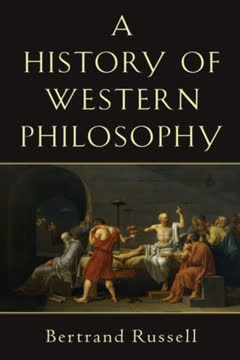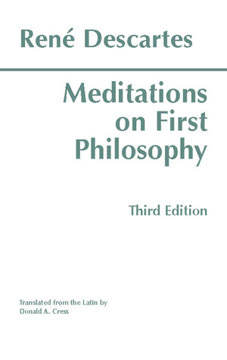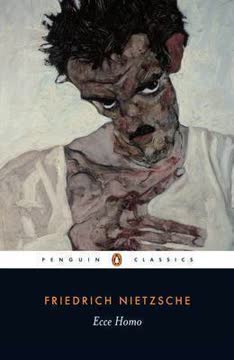Key Takeaways
1. Embrace Fatality: Amor Fati as the Key to Greatness
My formula for greatness in a human being is amor fati: that one wants nothing to be different, not forward, not backward, not in all eternity.
Acceptance of fate. Nietzsche posits that true greatness lies in amor fati, a love of fate. This involves not merely enduring what is necessary but actively embracing it, wishing nothing to be altered in one's past, present, or future. This acceptance is not passive resignation but an active affirmation of all aspects of existence.
Overcoming idealism. Amor fati stands in direct opposition to idealism, which Nietzsche sees as a mendacious attempt to escape the necessary realities of life. Idealism seeks to impose a false order on the world, while amor fati accepts the world as it is, with all its imperfections and contradictions.
The dual nature of existence. By embracing fatality, one transcends the limitations of the present and gains a profound understanding of the interconnectedness of all things. This perspective allows for a joyous and trusting fatalism, a faith that all is redeemed and affirmed in the whole.
2. Decadence and Health: A Dual Inheritance
This dual descent, as it were, both from the highest and the lowest rung on the ladder of life, at the same time a decadent and a beginning—this, if anything, explains that neutrality, that freedom from all partiality in relation to the total problem of life, that perhaps distinguishes me.
The paradox of Nietzsche's being. Nietzsche identifies himself as both a decadent and its opposite, a beginning. This duality stems from his lineage, inheriting both vitality and a predisposition to decline. This unique position grants him a rare perspective, free from the biases that often cloud judgment.
Decadence as a learning experience. Nietzsche acknowledges his experiences with sickness and decline, but he reframes them as essential to his understanding. These periods of low vitality sharpened his senses and allowed him to develop a keen awareness of the subtle signs of ascent and decline.
The will to health. Despite his decadent tendencies, Nietzsche emphasizes his instinctive ability to choose the right means to combat wretched states. This "will to health" is a driving force in his life, leading him to seek solitude, reject conventional care, and ultimately transform his suffering into a source of strength and insight.
3. The Philosopher's Path: Solitude, Strength, and Self-Mastery
Philosophy, as I have so far understood and lived it, means living voluntarily among ice and high mountains—seeking out everything strange and questionable in existence, everything so far placed under a ban by morality.
The philosopher's journey. Nietzsche describes philosophy as a solitary and challenging pursuit, a journey into the forbidden and questionable aspects of existence. This path requires courage, self-discipline, and a willingness to confront uncomfortable truths.
Rejection of comfort. The philosopher must reject the comforts and distractions of conventional life, including marriage, societal expectations, and the pursuit of fame. These things are seen as hindrances to the philosopher's true task: the pursuit of knowledge and self-mastery.
The importance of strength. The philosopher's path is not for the faint of heart. It requires a strong will, a capacity for enduring hardship, and a relentless commitment to truth. Only those who possess these qualities can hope to attain the heights of philosophical insight.
4. Beyond Good and Evil: The Revaluation of Values
I do not refute ideals, I merely put on gloves before them.
The critique of morality. Nietzsche's philosophy centers on a revaluation of all values, a radical questioning of the traditional moral concepts of good and evil. He argues that these values are not objective truths but rather human constructs, often rooted in weakness and ressentiment.
The death of the ideal. Nietzsche seeks to dismantle the "lie of the ideal," which he sees as a curse on reality. By exposing the origins and motivations behind moral values, he aims to liberate humanity from their oppressive influence.
The affirmation of life. The revaluation of values is not an end in itself but a means to a greater goal: the affirmation of life in all its complexity and ambiguity. Nietzsche seeks to create a new set of values that celebrate strength, creativity, and the will to power.
5. The Ascetic Ideal: A Will to Power Over Life Itself
The ascetic ideal expresses a will: where is the opposing will that might express an opposing ideal?
The nature of the ascetic ideal. Nietzsche identifies the ascetic ideal as a pervasive force in human history, characterized by a rejection of earthly pleasures and a focus on spiritual purification. This ideal is not simply a matter of self-denial but a manifestation of the will to power.
The priest as manipulator. The ascetic priest is the key figure in promoting this ideal, using it as a tool to control and dominate the suffering masses. By redirecting their ressentiment inward, the priest maintains his power and prevents the herd from challenging the established order.
Life against life. The ascetic ideal represents a fundamental contradiction: it is life turning against itself, seeking to suppress its own instincts and desires. This self-destructive impulse is ultimately rooted in a fear of life and a longing for nothingness.
6. The Priest's Deception: Morality as a Tool of Control
The ascetic priest is the incarnate desire to be different, to be in a different place, and indeed this desire at its greatest extreme, its distinctive fervor and passion; but precisely this power of his desire is the chain that holds him captive so that he becomes a tool for the creation of more favorable conditions for being here and being man.
The priest's role. The ascetic priest is not a genuine healer but a manipulator who exploits the suffering of others to maintain his own power. He offers consolation and relief, but only by reinforcing the underlying sickness.
The reinterpretation of suffering. The priest's most effective tool is the reinterpretation of suffering as guilt. By convincing the sick that they are responsible for their own misery, he redirects their ressentiment inward and prevents them from challenging the established order.
The orgy of feeling. The priest employs various techniques to induce orgies of feeling, using guilt, fear, and the promise of redemption to control the emotions of his flock. These emotional excesses provide temporary relief but ultimately leave the sick even sicker.
7. The Value of Truth: A Critique of Knowledge
The will to truth requires a critique—let us thus define our own task—the value of truth must for once be experimentally called into question.
The overestimation of truth. Nietzsche challenges the traditional philosophical assumption that truth is an absolute value. He argues that the will to truth, like any other drive, must be subjected to critical scrutiny.
Science as a manifestation of the ascetic ideal. Nietzsche sees modern science as a continuation of the ascetic ideal, driven by a similar desire for self-denial and a rejection of earthly pleasures. Science, in its pursuit of objectivity, often leads to a devaluation of human experience and a sense of meaninglessness.
The need for justification. Nietzsche argues that science, like any other human endeavor, requires justification. It must be shown to serve a higher purpose, to contribute to the enhancement of life and the will to power.
8. The Dionysian Spirit: Affirmation in the Face of Suffering
Saying Yes to life even in its strangest and hardest problems; the will to life rejoicing over its own inexhaustibility even in the very sacrifice of its highest types—that is what I called Dionysian.
The essence of the Dionysian. Nietzsche contrasts the ascetic ideal with the Dionysian spirit, which represents a joyous affirmation of life in all its aspects, including suffering and destruction. The Dionysian embraces the totality of existence, finding joy even in the face of its most challenging problems.
Tragedy as affirmation. Nietzsche sees tragedy as the highest expression of the Dionysian spirit. Tragedy does not seek to escape suffering but rather to celebrate it as an integral part of life's grandeur.
Beyond pessimism. The Dionysian spirit transcends pessimism by affirming the eternal recurrence of all things. This perspective allows one to embrace the totality of existence, knowing that even the most painful moments will be repeated endlessly.
9. Ecce Homo: Behold the Man - A New Image of Humanity
I am one thing, my writings are another matter.
A self-portrait. Ecce Homo is Nietzsche's attempt to define himself and his work, to offer a new image of humanity that transcends the limitations of traditional morality and philosophy. It is a highly stylized and self-conscious portrait, intended to challenge conventional notions of greatness and wisdom.
The artistic Socrates. Nietzsche presents himself as an "artistic Socrates," a philosopher who combines critical reason with a Dionysian affirmation of life. This figure is not a serene sage but a passionate and provocative thinker who embraces both joy and suffering.
A call to action. Ecce Homo is not merely a self-portrait but also a call to action. Nietzsche challenges his readers to embrace their own destinies, to create new values, and to become the overmen of the future.
Last updated:
Review Summary
On the Genealogy of Morals / Ecce Homo explores the origins of morality and Nietzsche's self-reflection. Readers appreciate Nietzsche's psychological insights, critique of religion, and provocative ideas on power and values. Many find his writing style poetic and aphoristic, though some struggle with its complexity. The book is seen as foundational for modern philosophy and psychology, influencing thinkers like Freud and Foucault. While controversial, readers value Nietzsche's unique perspective on human nature and morality, even if they don't always agree with his conclusions.
Similar Books










Download PDF
Download EPUB
.epub digital book format is ideal for reading ebooks on phones, tablets, and e-readers.













